- Home
- Nathaniel Hawthorne
The Snow Image Page 2
The Snow Image Read online
Page 2
THE GREAT STONE FACE
One afternoon, when the sun was going down, a mother and her little boysat at the door of their cottage, talking about the Great Stone Face.They had but to lift their eyes, and there it was plainly to be seen,though miles away, with the sunshine brightening all its features.
And what was the Great Stone Face?
Embosomed amongst a family of lofty mountains, there was a valley sospacious that it contained many thousand inhabitants. Some of thesegood people dwelt in log-huts, with the black forest all around them,on the steep and difficult hill-sides. Others had their homes incomfortable farm-houses, and cultivated the rich soil on the gentleslopes or level surfaces of the valley. Others, again, were congregatedinto populous villages, where some wild, highland rivulet, tumblingdown from its birthplace in the upper mountain region, had been caughtand tamed by human cunning, and compelled to turn the machinery ofcotton-factories. The inhabitants of this valley, in short, werenumerous, and of many modes of life. But all of them, grown people andchildren, had a kind of familiarity with the Great Stone Face, althoughsome possessed the gift of distinguishing this grand natural phenomenonmore perfectly than many of their neighbors.
The Great Stone Face, then, was a work of Nature in her mood ofmajestic playfulness, formed on the perpendicular side of a mountain bysome immense rocks, which had been thrown together in such a positionas, when viewed at a proper distance, precisely to resemble thefeatures of the human countenance. It seemed as if an enormous giant,or a Titan, had sculptured his own likeness on the precipice. There wasthe broad arch of the forehead, a hundred feet in height; the nose,with its long bridge; and the vast lips, which, if they could havespoken, would have rolled their thunder accents from one end of thevalley to the other. True it is, that if the spectator approached toonear, he lost the outline of the gigantic visage, and could discernonly a heap of ponderous and gigantic rocks, piled in chaotic ruin oneupon another. Retracing his steps, however, the wondrous features wouldagain be seen; and the farther he withdrew from them, the more like ahuman face, with all its original divinity intact, did they appear;until, as it grew dim in the distance, with the clouds and glorifiedvapor of the mountains clustering about it, the Great Stone Face seemedpositively to be alive.
It was a happy lot for children to grow up to manhood or womanhood withthe Great Stone Face before their eyes, for all the features werenoble, and the expression was at once grand and sweet, as if it werethe glow of a vast, warm heart, that embraced all mankind in itsaffections, and had room for more. It was an education only to look atit. According to the belief of many people, the valley owed much of itsfertility to this benign aspect that was continually beaming over it,illuminating the clouds, and infusing its tenderness into the sunshine.
As we began with saying, a mother and her little boy sat at theircottage-door, gazing at the Great Stone Face, and talking about it. Thechild's name was Ernest.
"Mother," said he, while the Titanic visage smiled on him, "I wish thatit could speak, for it looks so very kindly that its voice must needsbe pleasant. If I were to see a man with such a face, I should love himdearly."
"If an old prophecy should come to pass," answered his mother, "we maysee a man, some time or other, with exactly such a face as that."
"What prophecy do you mean, dear mother?" eagerly inquired Ernest."Pray tell me about it!"
So his mother told him a story that her own mother had told to her,when she herself was younger than little Ernest; a story, not of thingsthat were past, but of what was yet to come; a story, nevertheless, sovery old, that even the Indians, who formerly inhabited this valley,had heard it from their forefathers, to whom, as they affirmed, it hadbeen murmured by the mountain streams, and whispered by the wind amongthe tree-tops. The purport was, that, at some future day, a childshould be born hereabouts, who was destined to become the greatest andnoblest personage of his time, and whose countenance, in manhood,should bear an exact resemblance to the Great Stone Face. Not a fewold-fashioned people, and young ones likewise, in the ardor of theirhopes, still cherished an enduring faith in this old prophecy. Butothers, who had seen more of the world, had watched and waited tillthey were weary, and had beheld no man with such a face, nor any manthat proved to be much greater or nobler than his neighbors, concludedit to be nothing but an idle tale. At all events, the great man of theprophecy had not yet appeared.
"O mother, dear mother!" cried Ernest, clapping his hands above hishead, "I do hope that I shall live to see him!"
His mother was an affectionate and thoughtful woman, and felt that itwas wisest not to discourage the generous hopes of her little boy. Soshe only said to him, "Perhaps you may."
And Ernest never forgot the story that his mother told him. It wasalways in his mind, whenever he looked upon the Great Stone Face. Hespent his childhood in the log-cottage where he was born, and wasdutiful to his mother, and helpful to her in many things, assisting hermuch with his little hands, and more with his loving heart. In thismanner, from a happy yet often pensive child, he grew up to be a mild,quiet, unobtrusive boy, and sun-browned with labor in the fields, butwith more intelligence brightening his aspect than is seen in many ladswho have been taught at famous schools. Yet Ernest had had no teacher,save only that the Great Stone Face became one to him. When the toil ofthe day was over, he would gaze at it for hours, until he began toimagine that those vast features recognized him, and gave him a smileof kindness and encouragement, responsive to his own look ofveneration. We must not take upon us to affirm that this was a mistake,although the Face may have looked no more kindly at Ernest than at allthe world besides. But the secret was that the boy's tender andconfiding simplicity discerned what other people could not see; andthus the love, which was meant for all, became his peculiar portion.
About this time there went a rumor throughout the valley, that thegreat man, foretold from ages long ago, who was to bear a resemblanceto the Great Stone Face, had appeared at last. It seems that, manyyears before, a young man had migrated from the valley and settled at adistant seaport, where, after getting together a little money, he hadset up as a shopkeeper. His name--but I could never learn whether itwas his real one, or a nickname that had grown out of his habits andsuccess in life--was Gathergold. Being shrewd and active, and endowedby Providence with that inscrutable faculty which develops itself inwhat the world calls luck, he became an exceedingly rich merchant, andowner of a whole fleet of bulky-bottomed ships. All the countries ofthe globe appeared to join hands for the mere purpose of adding heapafter heap to the mountainous accumulation of this one man's wealth.The cold regions of the north, almost within the gloom and shadow ofthe Arctic Circle, sent him their tribute in the shape of furs; hotAfrica sifted for him the golden sands of her rivers, and gathered upthe ivory tusks of her great elephants out of the forests; the Eastcame bringing him the rich shawls, and spices, and teas, and theeffulgence of diamonds, and the gleaming purity of large pearls. Theocean, not to be behindhand with the earth, yielded up her mightywhales, that Mr. Gathergold might sell their oil, and make a profit ofit. Be the original commodity what it might, it was gold within hisgrasp. It might be said of him, as of Midas in the fable, that whateverhe touched with his finger immediately glistened, and grew yellow, andwas changed at once into sterling metal, or, which suited him stillbetter, into piles of coin. And, when Mr. Gathergold had become so veryrich that it would have taken him a hundred years only to count hiswealth, he bethought himself of his native valley, and resolved to goback thither, and end his days where he was born. With this purpose inview, he sent a skilful architect to build him such a palace as shouldbe fit for a man of his vast wealth to live in.
As I have said above, it had already been rumored in the valley thatMr. Gathergold had turned out to be the prophetic personage so long andvainly looked for, and that his visage was the perfect and undeniablesimilitude of the Great Stone Face. People were the more ready tobelieve that this must needs be the fact, when they beheld the splendidedifice that
rose, as if by enchantment, on the site of his father'sold weatherbeaten farm-house. The exterior was of marble, so dazzlinglywhite that it seemed as though the whole structure might melt away inthe sunshine, like those humbler ones which Mr. Gathergold, in hisyoung play-days, before his fingers were gifted with the touch oftransmutation, had been accustomed to build of snow. It had a richlyornamented portico, supported by tall pillars, beneath which was alofty door, studded with silver knobs, and made of a kind of variegatedwood that had been brought from beyond the sea. The windows, from thefloor to the ceiling of each stately apartment, were composed,respectively, of but one enormous pane of glass, so transparently purethat it was said to be a finer medium than even the vacant atmosphere.Hardly anybody had been permitted to see the interior of this palace;but it was reported, and with good semblance of truth, to be far moregorgeous than the outside, insomuch that whatever was iron or brass inother houses was silver or gold in this; and Mr. Gathergold'sbedchamber, especially, made such a glittering appearance that noordinary man would have been able to close his eyes there. But, on theother hand, Mr. Gathergold was now so inured to wealth, that perhaps hecould not have closed his eyes unless where the gleam of it was certainto find its way beneath his eyelids.
In due time, the mansion was finished; next came the upholsterers, withmagnificent furniture; then, a whole troop of black and white servants,the harbingers of Mr. Gathergold, who, in his own majestic person, wasexpected to arrive at sunset. Our friend Ernest, meanwhile, had beendeeply stirred by the idea that the great man, the noble man, the manof prophecy, after so many ages of delay, was at length to be mademanifest to his native valley. He knew, boy as he was, that there werea thousand ways in which Mr. Gathergold, with his vast wealth, mighttransform himself into an angel of beneficence, and assume a controlover human affairs as wide and benignant as the smile of the GreatStone Face. Full of faith and hope, Ernest doubted not that what thepeople said was true, and that now he was to behold the living likenessof those wondrous features on the mountain-side. While the boy wasstill gazing up the valley, and fancying, as he always did, that theGreat Stone Face returned his gaze and looked kindly at him, therumbling of wheels was heard, approaching swiftly along the windingroad.
"Here he comes!" cried a group of people who were assembled to witnessthe arrival. "Here comes the great Mr. Gathergold!"
A carriage, drawn by four horses, dashed round the turn of the road.Within it, thrust partly out of the window, appeared the physiognomy ofthe old man, with a skin as yellow as if his own Midas-hand hadtransmuted it. He had a low forehead, small, sharp eyes, puckered aboutwith innumerable wrinkles, and very thin lips, which he made stillthinner by pressing them forcibly together.
"The very image of the Great Stone Face!" shouted the people. "Sureenough, the old prophecy is true; and here we have the great man come,at last!"
And, what greatly perplexed Ernest, they seemed actually to believethat here was the likeness which they spoke of. By the roadside therechanced to be an old beggar-woman and two little beggar-children,stragglers from some far-off region, who, as the carriage rolledonward, held out their hands and lifted up their doleful voices, mostpiteously beseeching charity. A yellow claw--the very same that hadclawed together so much wealth--poked itself out of the coach-window,and dropt some copper coins upon the ground; so that, though the greatman's name seems to have been Gathergold, he might just as suitablyhave been nicknamed Scattercopper. Still, nevertheless, with an earnestshout, and evidently with as much good faith as ever, the peoplebellowed, "He is the very image of the Great Stone Face!"
But Ernest turned sadly from the wrinkled shrewdness of that sordidvisage, and gazed up the valley, where, amid a gathering mist, gildedby the last sunbeams, he could still distinguish those gloriousfeatures which had impressed themselves into his soul. Their aspectcheered him. What did the benign lips seem to say?
"He will come! Fear not, Ernest; the man will come!"
The years went on, and Ernest ceased to be a boy. He had grown to be ayoung man now. He attracted little notice from the other inhabitants ofthe valley; for they saw nothing remarkable in his way of life savethat, when the labor of the day was over, he still loved to go apartand gaze and meditate upon the Great Stone Face. According to theiridea of the matter, it was a folly, indeed, but pardonable, inasmuch asErnest was industrious, kind, and neighborly, and neglected no duty forthe sake of indulging this idle habit. They knew not that the GreatStone Face had become a teacher to him, and that the sentiment whichwas expressed in it would enlarge the young man's heart, and fill itwith wider and deeper sympathies than other hearts. They knew not thatthence would come a better wisdom than could be learned from books, anda better life than could be moulded on the defaced example of otherhuman lives. Neither did Ernest know that the thoughts and affectionswhich came to him so naturally, in the fields and at the fireside, andwherever he communed with himself, were of a higher tone than thosewhich all men shared with him. A simple soul,--simple as when hismother first taught him the old prophecy,--he beheld the marvellousfeatures beaming adown the valley, and still wondered that their humancounterpart was so long in making his appearance.
By this time poor Mr. Gathergold was dead and buried; and the oddestpart of the matter was, that his wealth, which was the body and spiritof his existence, had disappeared before his death, leaving nothing ofhim but a living skeleton, covered over with a wrinkled yellow skin.Since the melting away of his gold, it had been very generally concededthat there was no such striking resemblance, after all, betwixt theignoble features of the ruined merchant and that majestic face upon themountain-side. So the people ceased to honor him during his lifetime,and quietly consigned him to forgetfulness after his decease. Once in awhile, it is true, his memory was brought up in connection with themagnificent palace which he had built, and which had long ago beenturned into a hotel for the accommodation of strangers, multitudes ofwhom came, every summer, to visit that famous natural curiosity, theGreat Stone Face. Thus, Mr. Gathergold being discredited and throwninto the shade, the man of prophecy was yet to come.
It so happened that a native-born son of the valley, many years before,had enlisted as a soldier, and, after a great deal of hard fighting,had now become an illustrious commander. Whatever he may be called inhistory, he was known in camps and on the battle-field under thenickname of Old Blood-and-Thunder. This war-worn veteran being nowinfirm with age and wounds, and weary of the turmoil of a militarylife, and of the roll of the drum and the clangor of the trumpet, thathad so long been ringing in his ears, had lately signified a purpose ofreturning to his native valley, hoping to find repose where heremembered to have left it. The inhabitants, his old neighbors andtheir grown-up children, were resolved to welcome the renowned warriorwith a salute of cannon and a public dinner; and all the moreenthusiastically, it being affirmed that now, at last, the likeness ofthe Great Stone Face had actually appeared. An aid-de-camp of OldBlood-and-Thunder, travelling through the valley, was said to have beenstruck with the resemblance. Moreover the schoolmates and earlyacquaintances of the general were ready to testify, on oath, that, tothe best of their recollection, the aforesaid general had beenexceedingly like the majestic image, even when a boy, only the idea hadnever occurred to them at that period. Great, therefore, was theexcitement throughout the valley; and many people, who had never oncethought of glancing at the Great Stone Face for years before, now spenttheir time in gazing at it, for the sake of knowing exactly how GeneralBlood-and-Thunder looked.
On the day of the great festival, Ernest, with all the other people ofthe valley, left their work, and proceeded to the spot where the sylvanbanquet was prepared. As he approached, the loud voice of the Rev. Dr.Battleblast was heard, beseeching a blessing on the good things setbefore them, and on the distinguished friend of peace in whose honorthey were assembled. The tables were arranged in a cleared space of thewoods, shut in by the surrounding trees, except where a vista openedeastward, and afforded a distant view of the Great Stone
Face. Over thegeneral's chair, which was a relic from the home of Washington, therewas an arch of verdant boughs, with the laurel profusely intermixed,and surmounted by his country's banner, beneath which he had won hisvictories. Our friend Ernest raised himself on his tiptoes, in hopes toget a glimpse of the celebrated guest; but there was a mighty crowdabout the tables anxious to hear the toasts and speeches, and to catchany word that might fall from the general in reply; and a volunteercompany, doing duty as a guard, pricked ruthlessly with their bayonetsat any particularly quiet person among the throng. So Ernest, being ofan unobtrusive character, was thrust quite into the background, wherehe could see no more of Old Blood-and-Thunder's physiognomy than if ithad been still blazing on the battle-field. To console himself, heturned towards the Great Stone Face, which, like a faithful and longremembered friend, looked back and smiled upon him through the vista ofthe forest. Meantime, however, he could overhear the remarks of variousindividuals, who were comparing the features of the hero with the faceon the distant mountain-side.
"'Tis the same face, to a hair!" cried one man, cutting a caper for joy.
"Wonderfully like, that's a fact!" responded another.
"Like! why, I call it Old Blood-and-Thunder himself, in a monstrouslooking-glass!" cried a third. "And why not? He's the greatest man ofthis or any other age, beyond a doubt."
And then all three of the speakers gave a great shout, whichcommunicated electricity to the crowd, and called forth a roar from athousand voices, that went reverberating for miles among the mountains,until you might have supposed that the Great Stone Face had poured itsthunderbreath into the cry. All these comments, and this vastenthusiasm, served the more to interest our friend; nor did he think ofquestioning that now, at length, the mountain-visage had found itshuman counterpart. It is true, Ernest had imagined that thislong-looked-for personage would appear in the character of a man ofpeace, uttering wisdom, and doing good, and making people happy. But,taking an habitual breadth of view, with all his simplicity, hecontended that Providence should choose its own method of blessingmankind, and could conceive that this great end might be effected evenby a warrior and a bloody sword, should inscrutable wisdom see fit toorder matters so.
"The general! the general!" was now the cry. "Hush! silence! OldBlood-and-Thunder's going to make a speech."
Even so; for, the cloth being removed, the general's health had beendrunk, amid shouts of applause, and he now stood upon his feet to thankthe company. Ernest saw him. There he was, over the shoulders of thecrowd, from the two glittering epaulets and embroidered collar upward,beneath the arch of green boughs with intertwined laurel, and thebanner drooping as if to shade his brow! And there, too, visible in thesame glance, through the vista of the forest, appeared the Great StoneFace! And was there, indeed, such a resemblance as the crowd hadtestified? Alas, Ernest could not recognize it! He beheld a war-wornand weatherbeaten countenance, full of energy, and expressive of aniron will; but the gentle wisdom, the deep, broad, tender sympathies,were altogether wanting in Old Blood-and-Thunder's visage; and even ifthe Great Stone Face had assumed his look of stern command, the mildertraits would still have tempered it.
"This is not the man of prophecy," sighed Ernest to himself, as he madehis way out of the throng. "And must the world wait longer yet?"
The mists had congregated about the distant mountain-side, and therewere seen the grand and awful features of the Great Stone Face, awfulbut benignant, as if a mighty angel were sitting among the hills, andenrobing himself in a cloud-vesture of gold and purple. As he looked,Ernest could hardly believe but that a smile beamed over the wholevisage, with a radiance still brightening, although without motion ofthe lips. It was probably the effect of the western sunshine, meltingthrough the thinly diffused vapors that had swept between him and theobject that he gazed at. But--as it always did--the aspect of hismarvellous friend made Ernest as hopeful as if he had never hoped invain.
"Fear not, Ernest," said his heart, even as if the Great Face werewhispering him,--"fear not, Ernest; he will come."
More years sped swiftly and tranquilly away. Ernest still dwelt in hisnative valley, and was now a man of middle age. By imperceptibledegrees, he had become known among the people. Now, as heretofore, helabored for his bread, and was the same simple-hearted man that he hadalways been. But he had thought and felt so much, he had given so manyof the best hours of his life to unworldly hopes for some great good tomankind, that it seemed as though he had been talking with the angels,and had imbibed a portion of their wisdom unawares. It was visible inthe calm and well-considered beneficence of his daily life, the quietstream of which had made a wide green margin all along its course. Nota day passed by, that the world was not the better because this man,humble as he was, had lived. He never stepped aside from his own path,yet would always reach a blessing to his neighbor. Almost involuntarilytoo, he had become a preacher. The pure and high simplicity of histhought, which, as one of its manifestations, took shape in the gooddeeds that dropped silently from his hand, flowed also forth in speech.He uttered truths that wrought upon and moulded the lives of those whoheard him. His auditors, it may be, never suspected that Ernest, theirown neighbor and familiar friend, was more than an ordinary man; leastof all did Ernest himself suspect it; but, inevitably as the murmur ofa rivulet, came thoughts out of his mouth that no other human lips hadspoken.
When the people's minds had had a little time to cool, they were readyenough to acknowledge their mistake in imagining a similarity betweenGeneral Blood-and-Thunder's truculent physiognomy and the benign visageon the mountain-side. But now, again, there were reports and manyparagraphs in the newspapers, affirming that the likeness of the GreatStone Face had appeared upon the broad shoulders of a certain eminentstatesman. He, like Mr. Gathergold and Old Blood-and-Thunder, was anative of the valley, but had left it in his early days, and taken upthe trades of law and politics. Instead of the rich man's wealth andthe warrior's sword, he had but a tongue, and it was mightier than bothtogether. So wonderfully eloquent was he, that whatever he might chooseto say, his auditors had no choice but to believe him; wrong lookedlike right, and right like wrong; for when it pleased him, he couldmake a kind of illuminated fog with his mere breath, and obscure thenatural daylight with it. His tongue, indeed, was a magic instrument:sometimes it rumbled like the thunder; sometimes it warbled like thesweetest music. It was the blast of war, the song of peace; and itseemed to have a heart in it, when there was no such matter. In goodtruth, he was a wondrous man; and when his tongue had acquired him allother imaginable success,--when it had been heard in halls of state,and in the courts of princes and potentates,--after it had made himknown all over the world, even as a voice crying from shore toshore,--it finally persuaded his countrymen to select him for thePresidency. Before this time,--indeed, as soon as he began to growcelebrated,--his admirers had found out the resemblance between him andthe Great Stone Face; and so much were they struck by it, thatthroughout the country this distinguished gentleman was known by thename of Old Stony Phiz. The phrase was considered as giving a highlyfavorable aspect to his political prospects; for, as is likewise thecase with the Popedom, nobody ever becomes President without taking aname other than his own.
While his friends were doing their best to make him President, OldStony Phiz, as he was called, set out on a visit to the valley where hewas born. Of course, he had no other object than to shake hands withhis fellow-citizens and neither thought nor cared about any effectwhich his progress through the country might have upon the election.Magnificent preparations were made to receive the illustriousstatesman; a cavalcade of horsemen set forth to meet him at theboundary line of the State, and all the people left their business andgathered along the wayside to see him pass. Among these was Ernest.Though more than once disappointed, as we have seen, he had such ahopeful and confiding nature, that he was always ready to believe inwhatever seemed beautiful and good. He kept his heart continually open,and thus was sure to catch the blessing from on high when it s
houldcome. So now again, as buoyantly as ever, he went forth to behold thelikeness of the Great Stone Face.
The cavalcade came prancing along the road, with a great clattering ofhoofs and a mighty cloud of dust, which rose up so dense and high thatthe visage of the mountain-side was completely hidden from Ernest'seyes. All the great men of the neighborhood were there on horseback;militia officers, in uniform; the member of Congress; the sheriff ofthe county; the editors of newspapers; and many a farmer, too, hadmounted his patient steed, with his Sunday coat upon his back. Itreally was a very brilliant spectacle, especially as there werenumerous banners flaunting over the cavalcade, on some of which weregorgeous portraits of the illustrious statesman and the Great StoneFace, smiling familiarly at one another, like two brothers. If thepictures were to be trusted, the mutual resemblance, it must beconfessed, was marvellous. We must not forget to mention that there wasa band of music, which made the echoes of the mountains ring andreverberate with the loud triumph of its strains; so that airy andsoul-thrilling melodies broke out among all the heights and hollows, asif every nook of his native valley had found a voice, to welcome thedistinguished guest. But the grandest effect was when the far-offmountain precipice flung back the music; for then the Great Stone Faceitself seemed to be swelling the triumphant chorus, in acknowledgmentthat, at length, the man of prophecy was come.
All this while the people were throwing up their hats and shouting withenthusiasm so contagious that the heart of Ernest kindled up, and helikewise threw up his hat, and shouted, as loudly as the loudest,"Huzza for the great man! Huzza for Old Stony Phiz!" But as yet he hadnot seen him.
"Here he is, now!" cried those who stood near Ernest. "There! There!Look at Old Stony Phiz and then at the Old Man of the Mountain, and seeif they are not as like as two twin-brothers!"
In the midst of all this gallant array came an open barouche, drawn byfour white horses; and in the barouche, with his massive headuncovered, sat the illustrious statesman, Old Stony Phiz himself.
"Confess it," said one of Ernest's neighbors to him, "the Great StoneFace has met its match at last!"
Now, it must be owned that, at his first glimpse of the countenancewhich was bowing and smiling from the barouche, Ernest did fancy thatthere was a resemblance between it and the old familiar face upon themountain-side. The brow, with its massive depth and loftiness, and allthe other features, indeed, were boldly and strongly hewn, as if inemulation of a more than heroic, of a Titanic model. But the sublimityand stateliness, the grand expression of a divine sympathy, thatilluminated the mountain visage and etherealized its ponderous granitesubstance into spirit, might here be sought in vain. Something had beenoriginally left out, or had departed. And therefore the marvellouslygifted statesman had always a weary gloom in the deep caverns of hiseyes, as of a child that has outgrown its playthings or a man of mightyfaculties and little aims, whose life, with all its high performances,was vague and empty, because no high purpose had endowed it withreality.
Still, Ernest's neighbor was thrusting his elbow into his side, andpressing him for an answer.
"Confess! confess! Is not he the very picture of your Old Man of theMountain?"
"No!" said Ernest bluntly, "I see little or no likeness."
"Then so much the worse for the Great Stone Face!" answered hisneighbor; and again he set up a shout for Old Stony Phiz.
But Ernest turned away, melancholy, and almost despondent: for this wasthe saddest of his disappointments, to behold a man who might havefulfilled the prophecy, and had not willed to do so. Meantime, thecavalcade, the banners, the music, and the barouches swept past him,with the vociferous crowd in the rear, leaving the dust to settle down,and the Great Stone Face to be revealed again, with the grandeur thatit had worn for untold centuries.
"Lo, here I am, Ernest!" the benign lips seemed to say. "I have waitedlonger than thou, and am not yet weary. Fear not; the man will come."
The years hurried onward, treading in their haste on one another'sheels. And now they began to bring white hairs, and scatter them overthe head of Ernest; they made reverend wrinkles across his forehead,and furrows in his cheeks. He was an aged man. But not in vain had hegrown old: more than the white hairs on his head were the sage thoughtsin his mind; his wrinkles and furrows were inscriptions that Time hadgraved, and in which he had written legends of wisdom that had beentested by the tenor of a life. And Ernest had ceased to be obscure.Unsought for, undesired, had come the fame which so many seek, and madehim known in the great world, beyond the limits of the valley in whichhe had dwelt so quietly. College professors, and even the active men ofcities, came from far to see and converse with Ernest; for the reporthad gone abroad that this simple husbandman had ideas unlike those ofother men, not gained from books, but of a higher tone,--a tranquil andfamiliar majesty, as if he had been talking with the angels as hisdaily friends. Whether it were sage, statesman, or philanthropist,Ernest received these visitors with the gentle sincerity that hadcharacterized him from boyhood, and spoke freely with them of whatevercame uppermost, or lay deepest in his heart or their own. While theytalked together, his face would kindle, unawares, and shine upon them,as with a mild evening light. Pensive with the fulness of suchdiscourse, his guests took leave and went their way; and passing up thevalley, paused to look at the Great Stone Face, imagining that they hadseen its likeness in a human countenance, but could not remember where.
While Ernest had been growing up and growing old, a bountifulProvidence had granted a new poet to this earth. He likewise, was anative of the valley, but had spent the greater part of his life at adistance from that romantic region, pouring out his sweet music amidthe bustle and din of cities. Often, however, did the mountains whichhad been familiar to him in his childhood lift their snowy peaks intothe clear atmosphere of his poetry. Neither was the Great Stone Faceforgotten, for the poet had celebrated it in an ode, which was grandenough to have been uttered by its own majestic lips. This man ofgenius, we may say, had come down from heaven with wonderfulendowments. If he sang of a mountain, the eyes of all mankind beheld amightier grandeur reposing on its breast, or soaring to its summit,than had before been seen there. If his theme were a lovely lake, acelestial smile had now been thrown over it, to gleam forever on itssurface. If it were the vast old sea, even the deep immensity of itsdread bosom seemed to swell the higher, as if moved by the emotions ofthe song. Thus the world assumed another and a better aspect from thehour that the poet blessed it with his happy eyes. The Creator hadbestowed him, as the last best touch to his own handiwork. Creation wasnot finished till the poet came to interpret, and so complete it.
The effect was no less high and beautiful, when his human brethren werethe subject of his verse. The man or woman, sordid with the common dustof life, who crossed his daily path, and the little child who played init, were glorified if he beheld them in his mood of poetic faith. Heshowed the golden links of the great chain that intertwined them withan angelic kindred; he brought out the hidden traits of a celestialbirth that made them worthy of such kin. Some, indeed, there were, whothought to show the soundness of their judgment by affirming that allthe beauty and dignity of the natural world existed only in the poet'sfancy. Let such men speak for themselves, who undoubtedly appear tohave been spawned forth by Nature with a contemptuous bitterness; shehaving plastered them up out of her refuse stuff, after all the swinewere made. As respects all things else, the poet's ideal was the truesttruth.
The songs of this poet found their way to Ernest. He read them afterhis customary toil, seated on the bench before his cottage-door, wherefor such a length of time he had filled his repose with thought, bygazing at the Great Stone Face. And now as he read stanzas that causedthe soul to thrill within him, he lifted his eyes to the vastcountenance beaming on him so benignantly.
"O majestic friend," he murmured, addressing the Great Stone Face, "isnot this man worthy to resemble thee?"
The Face seemed to smile, but answered not a word.
Now it happened tha
t the poet, though he dwelt so far away, had notonly heard of Ernest, but had meditated much upon his character, untilhe deemed nothing so desirable as to meet this man, whose untaughtwisdom walked hand in hand with the noble simplicity of his life. Onesummer morning, therefore, he took passage by the railroad, and, in thedecline of the afternoon, alighted from the cars at no great distancefrom Ernest's cottage. The great hotel, which had formerly been thepalace of Mr. Gathergold, was close at hand, but the poet, with hiscarpet-bag on his arm, inquired at once where Ernest dwelt, and wasresolved to be accepted as his guest.
Approaching the door, he there found the good old man, holding a volumein his hand, which alternately he read, and then, with a finger betweenthe leaves, looked lovingly at the Great Stone Face.
"Good evening," said the poet. "Can you give a traveller a night'slodging?"
"Willingly," answered Ernest; and then he added, smiling, "Methinks Inever saw the Great Stone Face look so hospitably at a stranger."
The poet sat down on the bench beside him, and he and Ernest talkedtogether. Often had the poet held intercourse with the wittiest and thewisest, but never before with a man like Ernest, whose thoughts andfeelings gushed up with such a natural freedom, and who made greattruths so familiar by his simple utterance of them. Angels, as had beenso often said, seemed to have wrought with him at his labor in thefields; angels seemed to have sat with him by the fireside; and,dwelling with angels as friend with friends, he had imbibed thesublimity of their ideas, and imbued it with the sweet and lowly charmof household words. So thought the poet. And Ernest, on the other hand,was moved and agitated by the living images which the poet flung out ofhis mind, and which peopled all the air about the cottage-door withshapes of beauty, both gay and pensive. The sympathies of these two meninstructed them with a profounder sense than either could have attainedalone. Their minds accorded into one strain, and made delightful musicwhich neither of them could have claimed as all his own, nordistinguished his own share from the other's. They led one another, asit were, into a high pavilion of their thoughts, so remote, andhitherto so dim, that they had never entered it before, and sobeautiful that they desired to be there always.
As Ernest listened to the poet, he imagined that the Great Stone Facewas bending forward to listen too. He gazed earnestly into the poet'sglowing eyes.
"Who are you, my strangely gifted guest?" he said.
The poet laid his finger on the volume that Ernest had been reading.
"You have read these poems," said he. "You know me, then,--for I wrotethem."
Again, and still more earnestly than before, Ernest examined the poet'sfeatures; then turned towards the Great Stone Face; then back, with anuncertain aspect, to his guest. But his countenance fell; he shook hishead, and sighed.
"Wherefore are you sad?" inquired the poet.
"Because," replied Ernest, "all through life I have awaited thefulfilment of a prophecy; and, when I read these poems, I hoped that itmight be fulfilled in you."
"You hoped," answered the poet, faintly smiling, "to find in me thelikeness of the Great Stone Face. And you are disappointed, as formerlywith Mr. Gathergold, and Old Blood-and-Thunder, and Old Stony Phiz.Yes, Ernest, it is my doom. You must add my name to the illustriousthree, and record another failure of your hopes. For--in shame andsadness do I speak it, Ernest--I am not worthy to be typified by yonderbenign and majestic image."
"And why?" asked Ernest. He pointed to the volume. "Are not thosethoughts divine?"
"They have a strain of the Divinity," replied the poet. "You can hearin them the far-off echo of a heavenly song. But my life, dear Ernest,has not corresponded with my thought. I have had grand dreams, but theyhave been only dreams, because I have lived--and that, too, by my ownchoice--among poor and mean realities. Sometimes even--shall I dare tosay it?--I lack faith in the grandeur, the beauty, and the goodness,which my own words are said to have made more evident in nature and inhuman life. Why, then, pure seeker of the good and true, shouldst thouhope to find me, in yonder image of the divine?"
The poet spoke sadly, and his eyes were dim with tears. So, likewise,were those of Ernest.
At the hour of sunset, as had long been his frequent custom, Ernest wasto discourse to an assemblage of the neighboring inhabitants in theopen air. He and the poet, arm in arm, still talking together as theywent along, proceeded to the spot. It was a small nook among the hills,with a gray precipice behind, the stern front of which was relieved bythe pleasant foliage of many creeping plants that made a tapestry forthe naked rock, by hanging their festoons from all its rugged angles.At a small elevation above the ground, set in a rich framework ofverdure, there appeared a niche, spacious enough to admit a humanfigure, with freedom for such gestures as spontaneously accompanyearnest thought and genuine emotion. Into this natural pulpit Ernestascended, and threw a look of familiar kindness around upon hisaudience. They stood, or sat, or reclined upon the grass, as seemedgood to each, with the departing sunshine falling obliquely over them,and mingling its subdued cheerfulness with the solemnity of a grove ofancient trees, beneath and amid the boughs of which the golden rayswere constrained to pass. In another direction was seen the Great StoneFace, with the same cheer, combined with the same solemnity, in itsbenignant aspect.
Ernest began to speak, giving to the people of what was in his heartand mind. His words had power, because they accorded with his thoughts;and his thoughts had reality and depth, because they harmonized withthe life which he had always lived. It was not mere breath that thispreacher uttered; they were the words of life, because a life of gooddeeds and holy love was melted into them. Pearls, pure and rich, hadbeen dissolved into this precious draught. The poet, as he listened,felt that the being and character of Ernest were a nobler strain ofpoetry than he had ever written. His eyes glistening with tears, hegazed reverentially at the venerable man, and said within himself thatnever was there an aspect so worthy of a prophet and a sage as thatmild, sweet, thoughtful countenance, with the glory of white hairdiffused about it. At a distance, but distinctly to be seen, high up inthe golden light of the setting sun, appeared the Great Stone Face,with hoary mists around it, like the white hairs around the brow ofErnest. Its look of grand beneficence seemed to embrace the world.
At that moment, in sympathy with a thought which he was about to utter,the face of Ernest assumed a grandeur of expression, so imbued withbenevolence, that the poet, by an irresistible impulse, threw his armsaloft and shouted, "Behold! Behold! Ernest is himself the likeness ofthe Great Stone Face!"
Then all the people looked, and saw that what the deep-sighted poetsaid was true. The prophecy was fulfilled. But Ernest, having finishedwhat he had to say, took the poet's arm, and walked slowly homeward,still hoping that some wiser and better man than himself would by andby appear, bearing a resemblance to the GREAT STONE FACE.

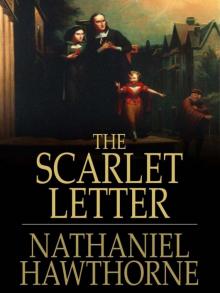 The Scarlet Letter
The Scarlet Letter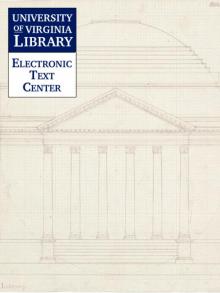 Young Goodman Brown : By Nathaniel Hawthorne - Illustrated
Young Goodman Brown : By Nathaniel Hawthorne - Illustrated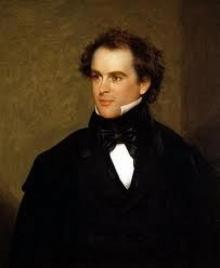 The Birthmark
The Birthmark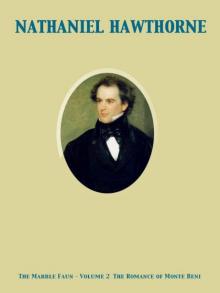 The Marble Faun; Or, The Romance of Monte Beni - Volume 1
The Marble Faun; Or, The Romance of Monte Beni - Volume 1 The Minister's Black Veil
The Minister's Black Veil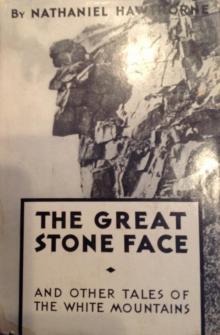 The Great Stone Face, and Other Tales of the White Mountains
The Great Stone Face, and Other Tales of the White Mountains The House of the Seven Gables
The House of the Seven Gables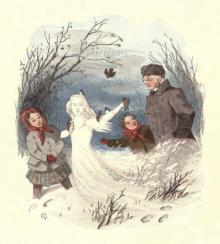 The Snow Image
The Snow Image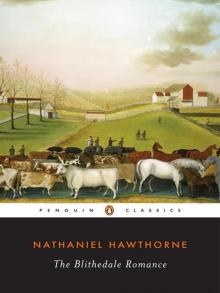 The Blithedale Romance
The Blithedale Romance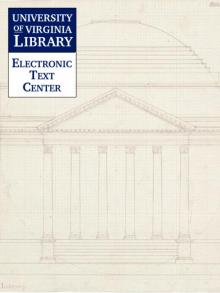 Rappaccini's Daughter: By Nathaniel Hawthorne - Illustrated
Rappaccini's Daughter: By Nathaniel Hawthorne - Illustrated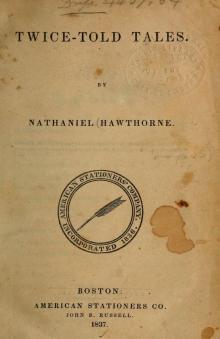 Twice-Told Tales
Twice-Told Tales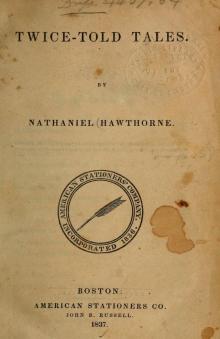 Twice Told Tales
Twice Told Tales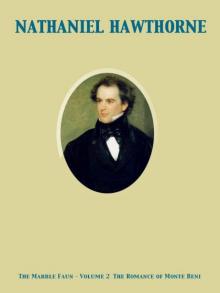 The Marble Faun; Or, The Romance of Monte Beni - Volume 2
The Marble Faun; Or, The Romance of Monte Beni - Volume 2_preview.jpg) Footprints on the Sea-Shore (From Twice Told Tales)
Footprints on the Sea-Shore (From Twice Told Tales) Main Street
Main Street_preview.jpg) The Seven Vagabonds (From Twice Told Tales)
The Seven Vagabonds (From Twice Told Tales) Fanshawe
Fanshawe Chippings with a Chisel
Chippings with a Chisel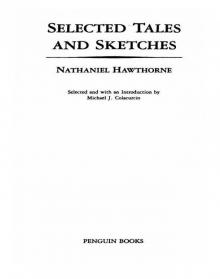 Selected Tales and Sketches
Selected Tales and Sketches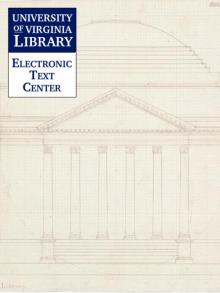 Young Goodman Brown
Young Goodman Brown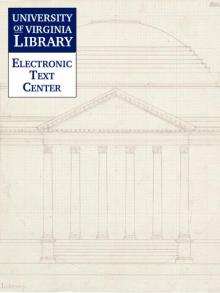 Roger Malvin's Burial
Roger Malvin's Burial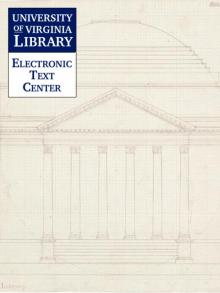 The Prophetic Pictures
The Prophetic Pictures The Village Uncle
The Village Uncle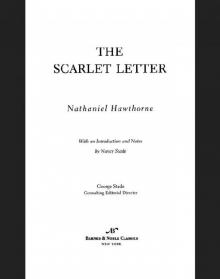 Scarlet Letter (Barnes & Noble Classics Series)
Scarlet Letter (Barnes & Noble Classics Series)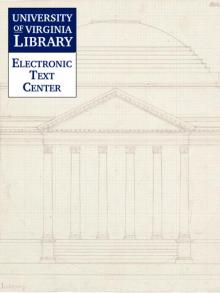 The Procession of Life
The Procession of Life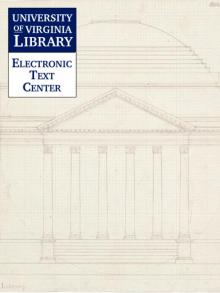 Drowne's Wooden Image
Drowne's Wooden Image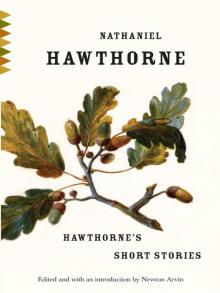 Hawthorne's Short Stories
Hawthorne's Short Stories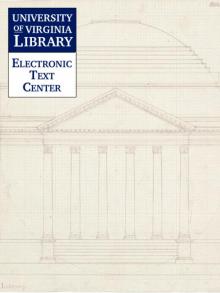 My Kinsman, Major Molineux
My Kinsman, Major Molineux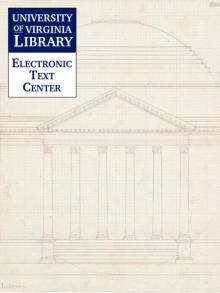 Legends of the Province House
Legends of the Province House Foot-Prints on the Sea-Shore
Foot-Prints on the Sea-Shore The Haunted Quack
The Haunted Quack Tanglewood Tales
Tanglewood Tales The Seven Vagabonds
The Seven Vagabonds Mosses from an Old Manse, Volume 2
Mosses from an Old Manse, Volume 2 The Canterbury Pilgrims
The Canterbury Pilgrims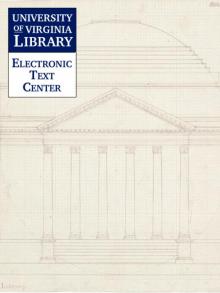 Wakefield
Wakefield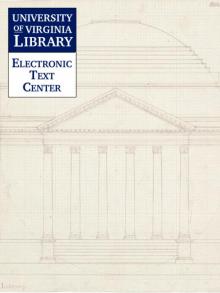 The Gray Champion
The Gray Champion The White Old Maid
The White Old Maid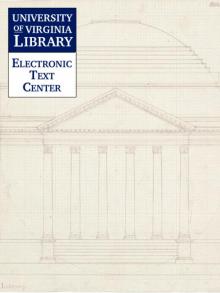 The Snow-Image: A Childish Miracle
The Snow-Image: A Childish Miracle The Gentle Boy
The Gentle Boy Mr. Higginbotham's Catastrophe
Mr. Higginbotham's Catastrophe![The Threefold Destiny: A Fairy Legend, by Ashley Allen Royce [pseud.] Read online](http://i1.bookreadfree.com/i2/04/10/the_threefold_destiny_a_fairy_legend_by_ashley_allen_royce_pseud__preview.jpg) The Threefold Destiny: A Fairy Legend, by Ashley Allen Royce [pseud.]
The Threefold Destiny: A Fairy Legend, by Ashley Allen Royce [pseud.]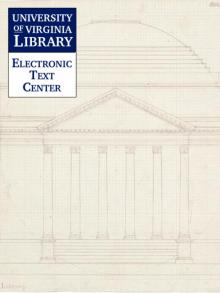 Lady Eleanore`s Mantle
Lady Eleanore`s Mantle The Great Carbuncle
The Great Carbuncle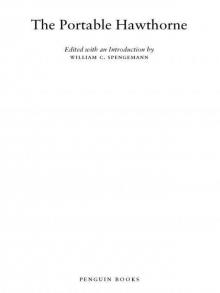 The Portable Hawthorne (Penguin Classics)
The Portable Hawthorne (Penguin Classics)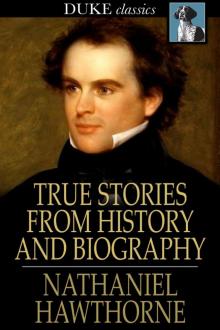 True Stories from History and Biography
True Stories from History and Biography